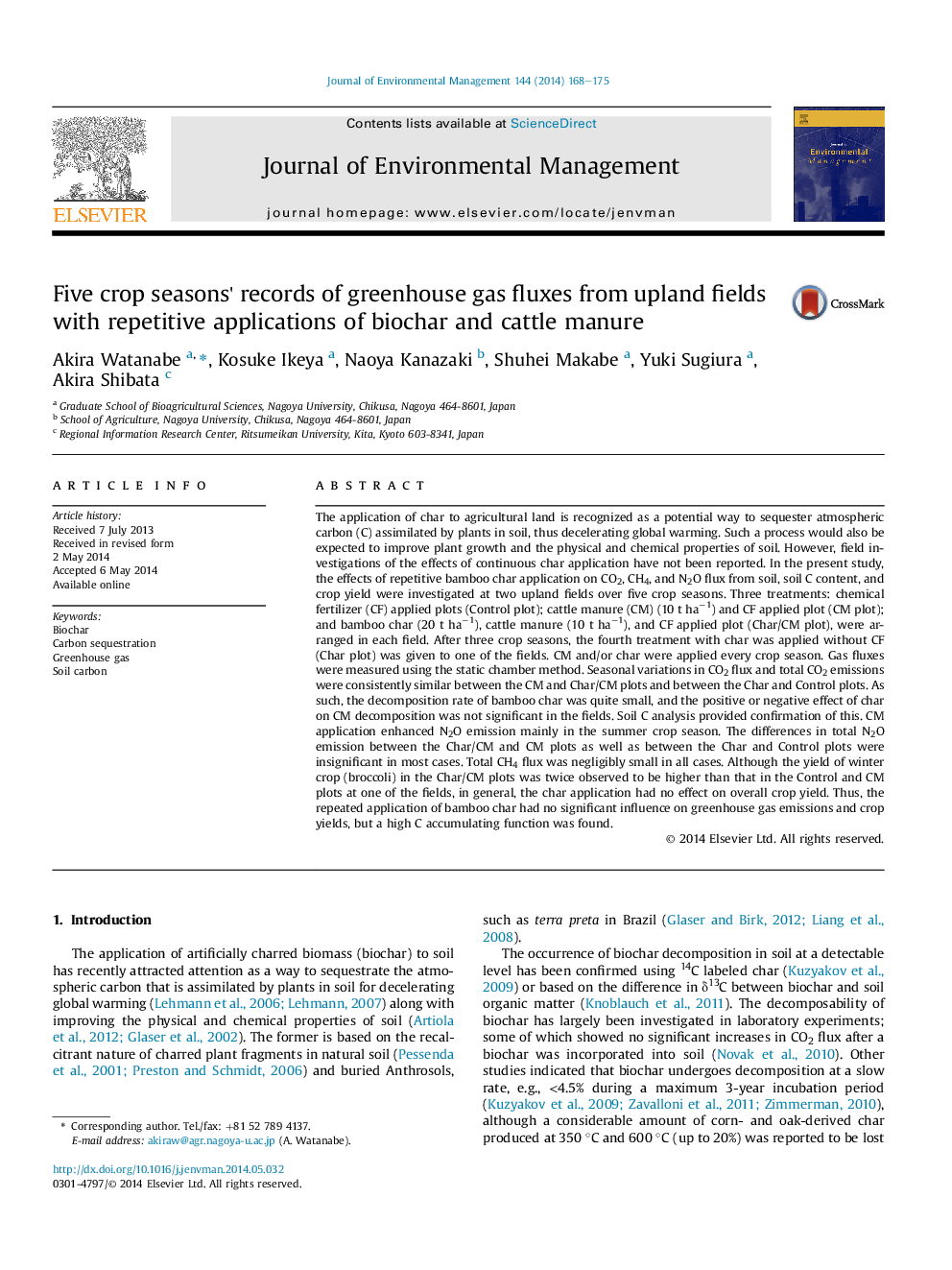| Article ID | Journal | Published Year | Pages | File Type |
|---|---|---|---|---|
| 7483665 | Journal of Environmental Management | 2014 | 8 Pages |
Abstract
The application of char to agricultural land is recognized as a potential way to sequester atmospheric carbon (C) assimilated by plants in soil, thus decelerating global warming. Such a process would also be expected to improve plant growth and the physical and chemical properties of soil. However, field investigations of the effects of continuous char application have not been reported. In the present study, the effects of repetitive bamboo char application on CO2, CH4, and N2O flux from soil, soil C content, and crop yield were investigated at two upland fields over five crop seasons. Three treatments: chemical fertilizer (CF) applied plots (Control plot); cattle manure (CM) (10 t haâ1) and CF applied plot (CM plot); and bamboo char (20 t haâ1), cattle manure (10 t haâ1), and CF applied plot (Char/CM plot), were arranged in each field. After three crop seasons, the fourth treatment with char was applied without CF (Char plot) was given to one of the fields. CM and/or char were applied every crop season. Gas fluxes were measured using the static chamber method. Seasonal variations in CO2 flux and total CO2 emissions were consistently similar between the CM and Char/CM plots and between the Char and Control plots. As such, the decomposition rate of bamboo char was quite small, and the positive or negative effect of char on CM decomposition was not significant in the fields. Soil C analysis provided confirmation of this. CM application enhanced N2O emission mainly in the summer crop season. The differences in total N2O emission between the Char/CM and CM plots as well as between the Char and Control plots were insignificant in most cases. Total CH4 flux was negligibly small in all cases. Although the yield of winter crop (broccoli) in the Char/CM plots was twice observed to be higher than that in the Control and CM plots at one of the fields, in general, the char application had no effect on overall crop yield. Thus, the repeated application of bamboo char had no significant influence on greenhouse gas emissions and crop yields, but a high C accumulating function was found.
Related Topics
Physical Sciences and Engineering
Energy
Renewable Energy, Sustainability and the Environment
Authors
Akira Watanabe, Kosuke Ikeya, Naoya Kanazaki, Shuhei Makabe, Yuki Sugiura, Akira Shibata,
